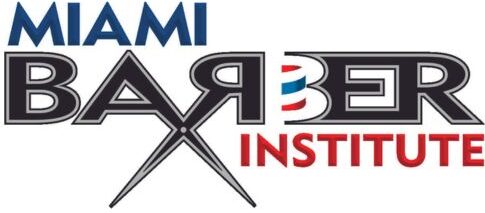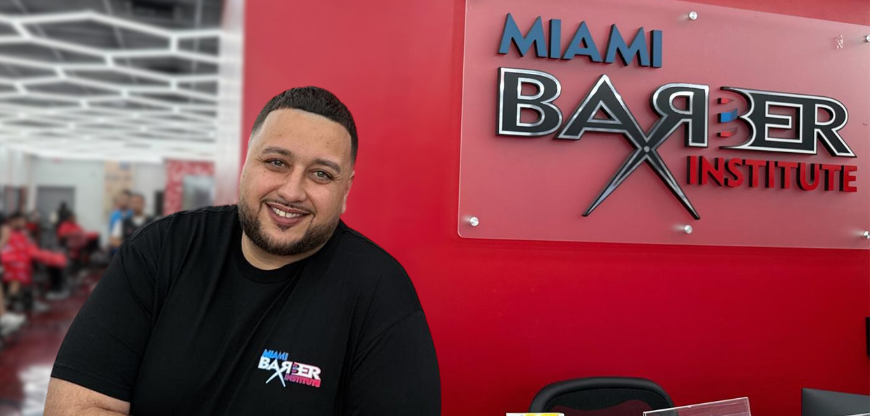The Case for Vocational Education:
Why Barbering Deserves a Place in America’s Higher Ed Debate
By Luis Castillo, Miami Barber Institute President and Co-founder.
As millions of students across the U.S. walk across the stage this spring, a growing number of families are confronting a painful truth: the cost of a four-year college degree is at an all-time high, and the return on investment is increasingly uncertain.
In a widely shared article published by North by Northwestern, the author reflects on his roommate’s experience graduating with a $300,000 degree in economics, only to begin a job in investment banking where none of his coursework is relevant. “His degree is nothing more than a fancy credential,” the student writes. “It’s not at all necessary for the work he’ll be doing.”
This reality is far from unique. In 2024, over 43 million Americans hold student loan debt, totaling more than $1.6 trillion (Federal Student Aid). And yet, according to the Federal Reserve, nearly 40% of recent graduates are underemployed—working in jobs that don’t require a degree.
So why is the four-year degree still seen as the default path to stability? And more importantly: what alternatives exist?
A Global Perspective: Skills Over Credentials
Countries like Germany and Sweden have embraced vocational education as a strategic national asset. In Germany’s dual training system, students split time between classroom instruction and paid apprenticeships with companies—developing real-world skills while earning a wage. Over 50% of German youth choose this route, helping maintain one of the lowest youth unemployment rates in Europe (OECD, 2023).
In Sweden, vocational programs are directly aligned with labor market needs, managed by a national agency that funds education based on current and projected skill shortages. The result? A workforce prepared not for degrees—but for careers.
Barbering: A High-Demand, Human-Centered Profession
Here in the U.S., one of the most promising—but overlooked—vocational tracks is barbering. According to the U.S. Bureau of Labor Statistics, employment for barbers is projected to grow 7% through 2032, outpacing the national average for all occupations.
Barbers earn an average of $41,570 annually, with the top 10% surpassing $61,000—and these numbers don’t account for tips, private clients, or brand-building opportunities. Unlike many degree-based careers, barbering is immune to outsourcing or automation. A haircut, a shave, a conversation—these are deeply personal, tactile services that require trust and skill.
But where do future barbers get trained?
Miami Barber Institute: A Blueprint for Workforce Readiness
Located in the heart of one of the nation’s most diverse and entrepreneurial cities, Miami Barber Institute (MBI) is redefining what modern vocational education looks like. More than just a barber school, MBI is a professional launchpad—offering fast, flexible, and affordable programs designed to produce licensed, confident, and employable professionals in less than a year.
What Makes MBI Stand Out?
- Accredited Programs:
MBI offers both a 6 months Restricted Barber Program and a 9 months Barber Program, fully approved and aligned with state licensure requirements. - Bilingual Instruction:
All courses are available in English and Spanish, serving Miami’s multicultural community, including Hispanic, African American, Haitian, and veteran students. - Flexible Scheduling:
MBI accommodates students with morning, afternoon, and evening classes, as well as hybrid learning options, making it ideal for working adults or parents.
- Financial Aid and GI Bill® Benefits:
MBI is approved to accept federal financial aid (Title IV) and is authorized to enroll veterans and eligible dependents using their GI Bill® education benefits. This makes MBI a powerful option for transitioning service members, many of whom seek careers that are hands-on, community-driven, and self-directed. - Business Training:
Beyond technical skill, students learn how to run a barbershop, build a personal brand, manage appointments, and grow a loyal clientele—essential tools for long-term income and independence. - Inclusive Access:
From high school graduates to career changers, immigrants to veterans, MBI opens the door to opportunity for those seeking stability without debt.
- Real-World Training:
Students learn in a state-of-the-art facility that simulates a modern barbershop, gaining hands-on experience in cutting, styling, sanitation, and client care from day one. - Business and Branding Curriculum:
Unlike traditional trade schools, MBI integrates entrepreneurship training into its curriculum—empowering students to open shops, build personal brands, and scale their income on their own terms.
A Pathway for All
MBI isn’t just for high school graduates. It’s a vital option for:
- Young adults reconsidering expensive or unfinished college paths
- Veterans transitioning into civilian careers
- Parents seeking work-life balance
- Career changers affected by layoffs, automation, or burnout
- Immigrants and first-generation students seeking independence
In all cases, MBI offers something traditional colleges cannot: a direct, affordable path to professional identity, financial freedom, and community leadership.
A Cultural Shift We Can No Longer Delay
As the North by Northwestern article so rightly states, “It’s time Americans stop throwing themselves into massive student debt in fear that it is the only path to a stable, rewarding life.”
Barbering, and schools like Miami Barber Institute, are proving that success doesn’t have to come with a degree or debt. What it takes instead is skill, discipline, and access to the right kind of education.
It’s time to bring vocational excellence back to the center of the national conversation. The future of work depends on it.
To learn more about programs, tuition, and enrollment at MBI, visit mbi.edu or call to schedule a campus tour.
Recent Posts
- Después de la Toga… ¡A competir! La Tradicional Batalla de Barberos de MBI Regresa el 10 de Agosto
- The Clippers Come Out After the Caps Come Off: MBI Barber Battle Returns August 10
- MBI se enorgullece en recibir al experto en liderazgo Bert Oliva en la Ceremonia de Graduación 2025
- MBI Proudly Welcomes Leadership Expert Bert Oliva to the 2025 Graduation Ceremony
- Miami Barber Institute Partners with WSS for Community Outreach Event


